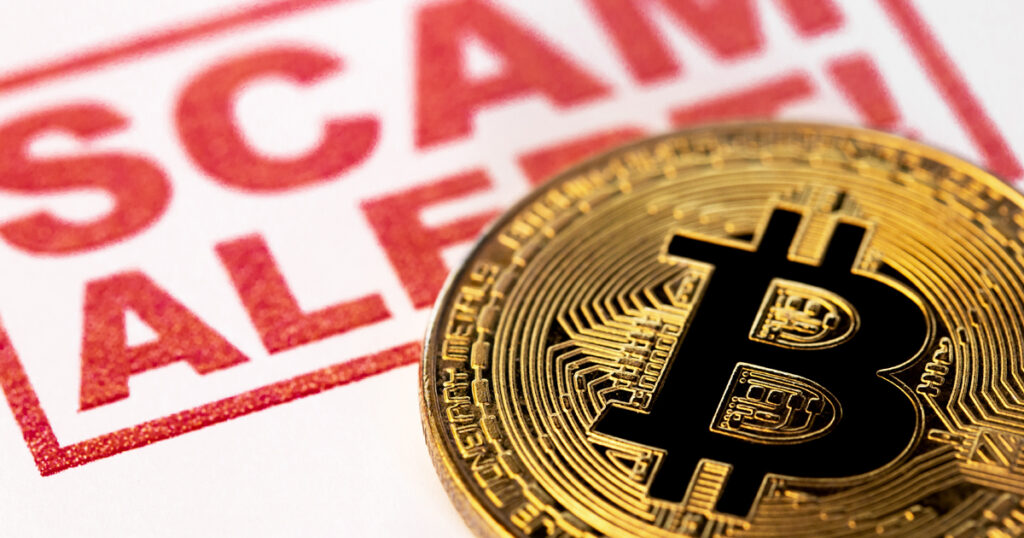
Cryptocurrencies often attract fraudsters
The combined market value of all cryptocurrencies surpassed $1 trillion in 2022. That kind of money is a huge draw for scammers, who successfully liberate billions of dollars from crypto investors each year. Though many crypto scams operate similarly to other run-of-the-mill scams across the internet, they’re particularly attractive to cyberthieves because crypto transactions are not monitored by any central authority, making it impossible to spot suspicious activity. Plus, crypto transfers are irreversible.
As with most other scams, your best defense is to educate yourself about how Bitcoin and other cryptocurrency scams are carried out.
Ponzi or pyramid schemes promise high returns on investments but rely on new investors’ money to pay off previous investors. When there are no more new investors, the scheme collapses, resulting in most participants losing their money.
Fake cryptocurrency exchanges are created by scammers to look legitimate and lure users into depositing their cryptocurrencies. Once the funds are deposited, the scammers disappear.
Phishing scams use deceptive emails pretending to be a trusted crypto-related service, such as an exchange or wallet provider. They try to trick users into revealing their private keys or passwords to gain access to their accounts.
Malware and wallet theft can occur when malicious software infects computers or mobile devices to steal Bitcoin wallets or private keys.
“Pump and dump” schemes use deceptive practices such as spreading false information or pressuring people to buy a low-value cryptocurrency, which drives up its price. Once the price rises significantly the scammers sell their holdings, causing the price to crash.
Social media giveaway scams use impersonators of well-known individuals or companies to get users to send a small amount of Bitcoin as a “processing fee” in return for a promise to receive more Bitcoin for free.
To protect yourself from Bitcoin scams, exercise caution, do thorough research, verify the legitimacy of any service or investment opportunity, and be wary of offers that seem too good to be true. Additionally, always use secure wallets and keep your private keys and passwords safe.
About This Author

Ross Bentzler
Ross Bentzler is Executive VP and Information Security Officer for Alpine Bank. Ross has worked in the information technology field for two decades, focusing on information security for 13 years.
More about Ross Bentzler


